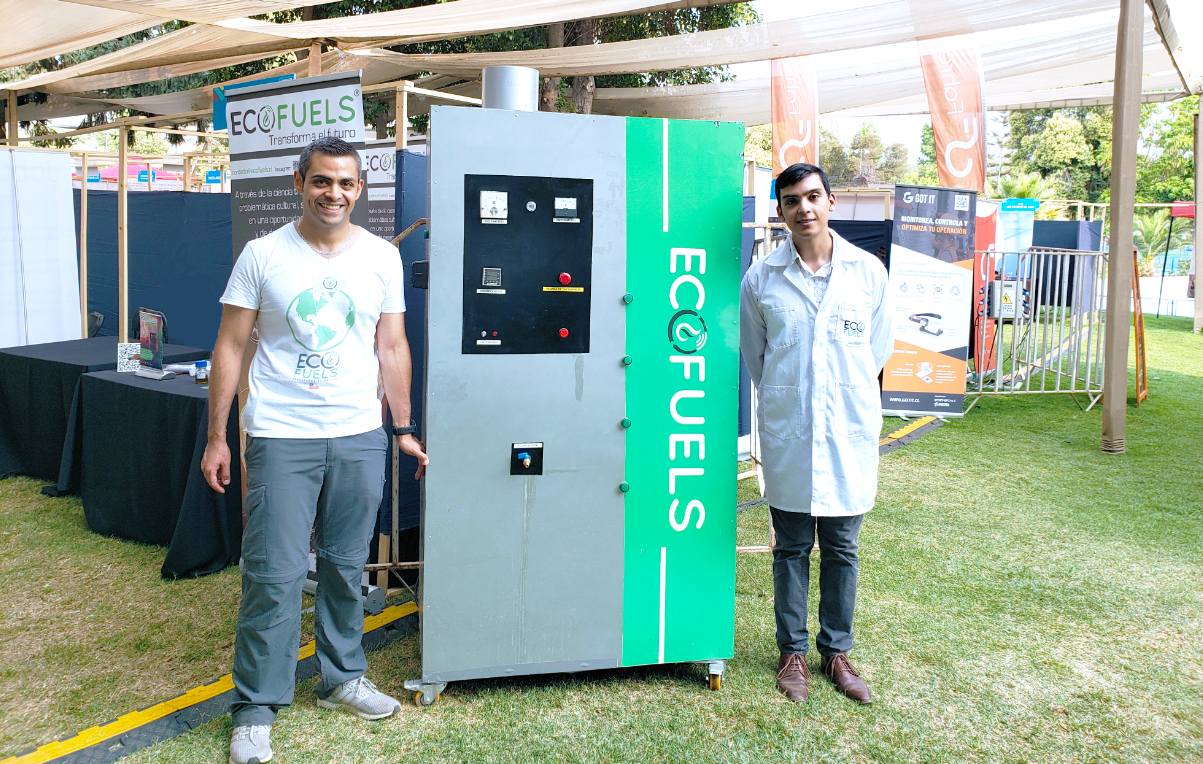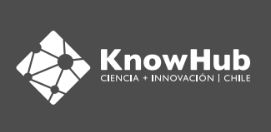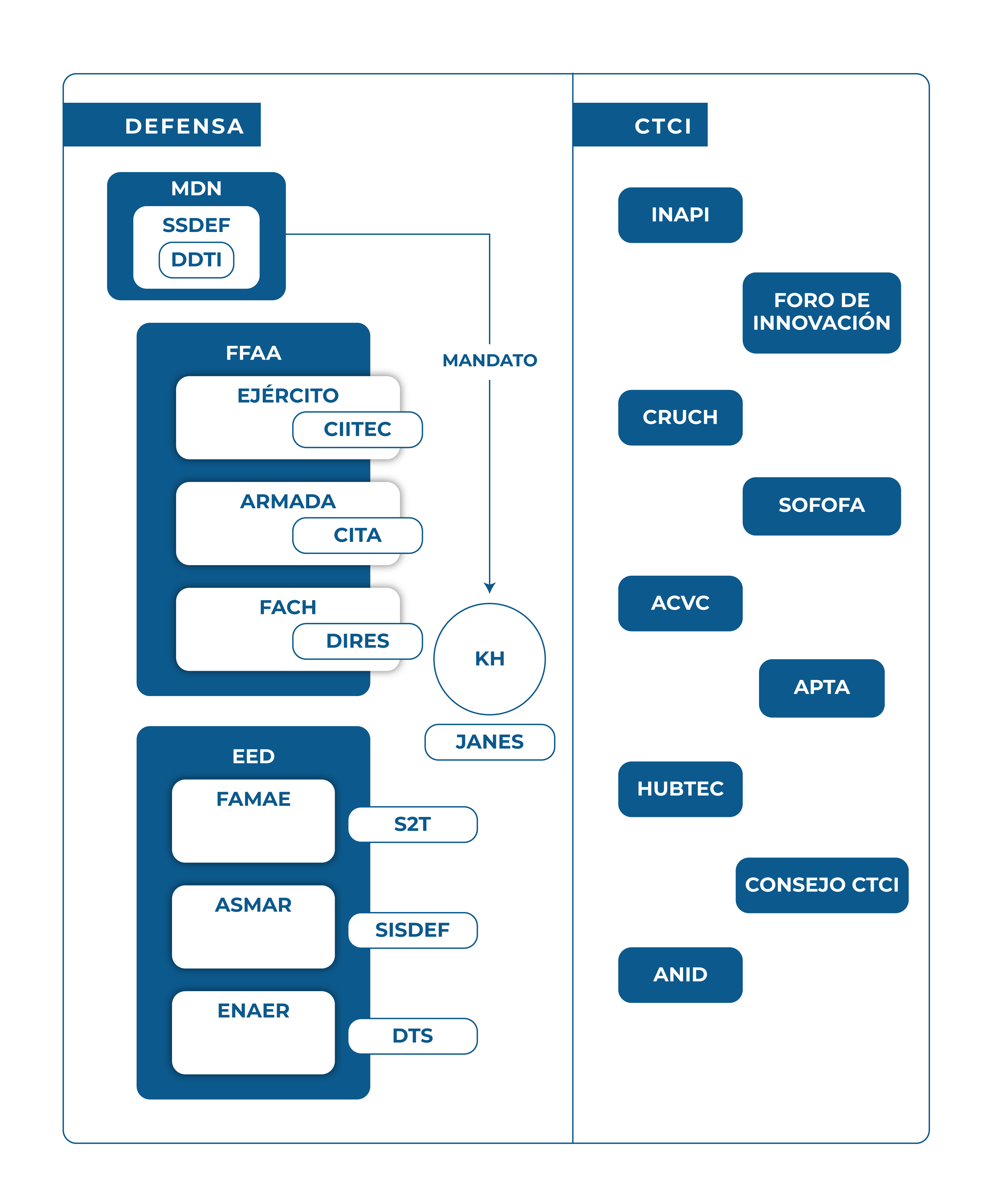NEWS
+ News
ECOFUELS AND THE NEW GENERATION IN PLASTIC RECYCLING: EVERYTHING IS TRANSFORMED
The stake behind this undertaking is to convert the enormous amount of plastic waste into an organic liquid with multiple applications. Better still, without using water (water footprint 0) and using a laptop, which would democratise recycling. We invite you to learn more about EcoFuels on World Recycling Day.
EcoFuels is a venture which applies science and technology to recycle plastics, a huge problem worldwide: annually we produce more than 350 million tons of plastics, the vast majority ending up in landfills and in the ocean. In fact, the accumulation of this material gave rise to an island on the north coast of our country which in 2019 was three times the size of continental Chile.
EcoFuels originated in 2015 in a hallway conversation and exchange of ideals about sustainability between two PhD students from the Faculty of Physical Sciences and Mathematics of the University of Chile, Ariel Crespo and by Jose Duguet who had a firm purpose: to create their own experimental design, capable of processing plastic waste in a more efficient and effective way compared to existing methods.
In 2020, EcoFuels took a leap forward with Crespo taking over as full-time CEO (Duguet continues as product engineer). In this new context, they decided to apply to Know Hub Ignition, the programme to support the growth and maturation of science-technology-based ventures of Know Hub Chile… And it was one of the winning teams! Since then, the corporation has accompanied them on their journey as entrepreneurs.
Today, on the Global Recycling Day, we are sharing an interview with Ariel Crespo.
Why a solution for recycling?
According to a study by the University of Newcastle (Australia), human beings eat approximately one credit card per week. This is due to the fact that they have been incorporated into the food chain (trophic) of all species, nanoparticles and plastic microfibres which are generated from plastic waste from: landfills and oceans. That is why we consider it essential to develop an alternative technological solution to the traditional recycling of plastics, a system that currently has multiple limitations.
What are those limitations of traditional plastic recycling and how does EcoFuels revert this?
The traditional recycling of plastic waste uses mechanical processes which have a limit, since the chemical structures of plastics are gradually degrading. In this process, in addition, nanoparticles and plastic microfibres are generated which are the ones to later become incorporated into our food chain.
Moreover, traditional recycling involves high costs, due to logistical issues, due to its high selectivity – only certain types of plastics can be used – and because of the use of large amounts of water: it requires clean plastics, so, on average, to recycle a single kilogram of plastic, the traditional system uses 5.3 litres of water. In contrast, EcoFuels technology is portable, reducing logistics costs by up to 80%; it uses a wide range of plastics and does not require them to be clean, so its water footprint is zero. All these advantages of EcoFuels have a single purpose: to reverse the low rate of 9% worldwide plastic recycling.
Unlike traditional recycling, EcoFuels aims to give true circularity to plastic, which since it is being reused, is more a palliative measure than a solution. Faced with all these arguments, we were motivated to innovate and create EcoFuels, a more sustainable plastics recycling system for our planet, based on the Lomonosov-Lavoisier Conservation Law: «Matter and energy are neither created nor destroyed, they are only transformed.»
What technology does EcoFuels use?
We are developing our own thermochemical process which has a pending PCT patent. This process has a series of advantages: it does not burn, so it does not generate CO2 and it does not need water. This is because plastics do not need to be washed, that is, their water footprint is 0.
This technology transforms a wide variety of plastics into an organic liquid which can be used as a paint solvent, lubricant or anticorrosive for mechanical maintenance or as a fuel or fuel additive in domestic heating or industrial use. The final product will depend on what is more favourable to the customer and their industry.
What have been your greatest challenges?
- The most difficult thing for us was being a start-up with a scientific-technological base, focusing on a physical-chemical and not a digital process which is where most start-ups in Chile and in the world have developed.
Fortunately, through the Know Hub Ignition programme, Ecofuels has been able to go from being a science-based innovation to a science-based venture: we have made our first sales and are optimising both the initial process as well as our business model.
We are moving from a mentality with an academic focus, to a scientific-commercial one, where it is not enough just to have a good idea, but that this also generates income. At the same time, these generate constant optimisations in the team of people, as well as in our technology, which allows us to dream of generating income from the hand of constant innovation, being a bridge between the academy and the business-scientist.
What is the Extended Producer Responsibility Law or REP Law?
The REP Law has existed in Chile for a couple of years already. This gradually obliges producers, importers and consumers of plastics to reduce the impact on the environment of containers and packaging. In the event that the regulations are not complied with, companies and municipalities risk fines which can reach up to 8 million dollars. That is why our technology acquires greater value.
Currently, what is the situation of Ecofuels?
We are carrying out piloting, adjusting our technology to the needs and types of plastics of our customers. For example, in the case of Quimica Maguey, a company which produces cleaning supplies, the plastic they use the most is high-density polyethylene. Therefore, we are adjusting the process to generate in its recycling, as a by-product, a liquid that will be used for the production of mechanical maintenance oils, type WD-40.
Before long, we should be signing an annual contract with Quimica Maguey, which is the model we should generally use. We are also evaluating scaling the process at its plant in Santiago or in the south of Chile, which we are really excited about, because we could reach areas of the country where conventional recycling has not succeeded, due to the high logistical costs of its implementation.
In parallel, we started another pilot with a cosmetic start-up, Delta Labs, which works with high-density polyethylene and polypropylene.
Do you want more information about EcoFuels? Check their tech card here.




